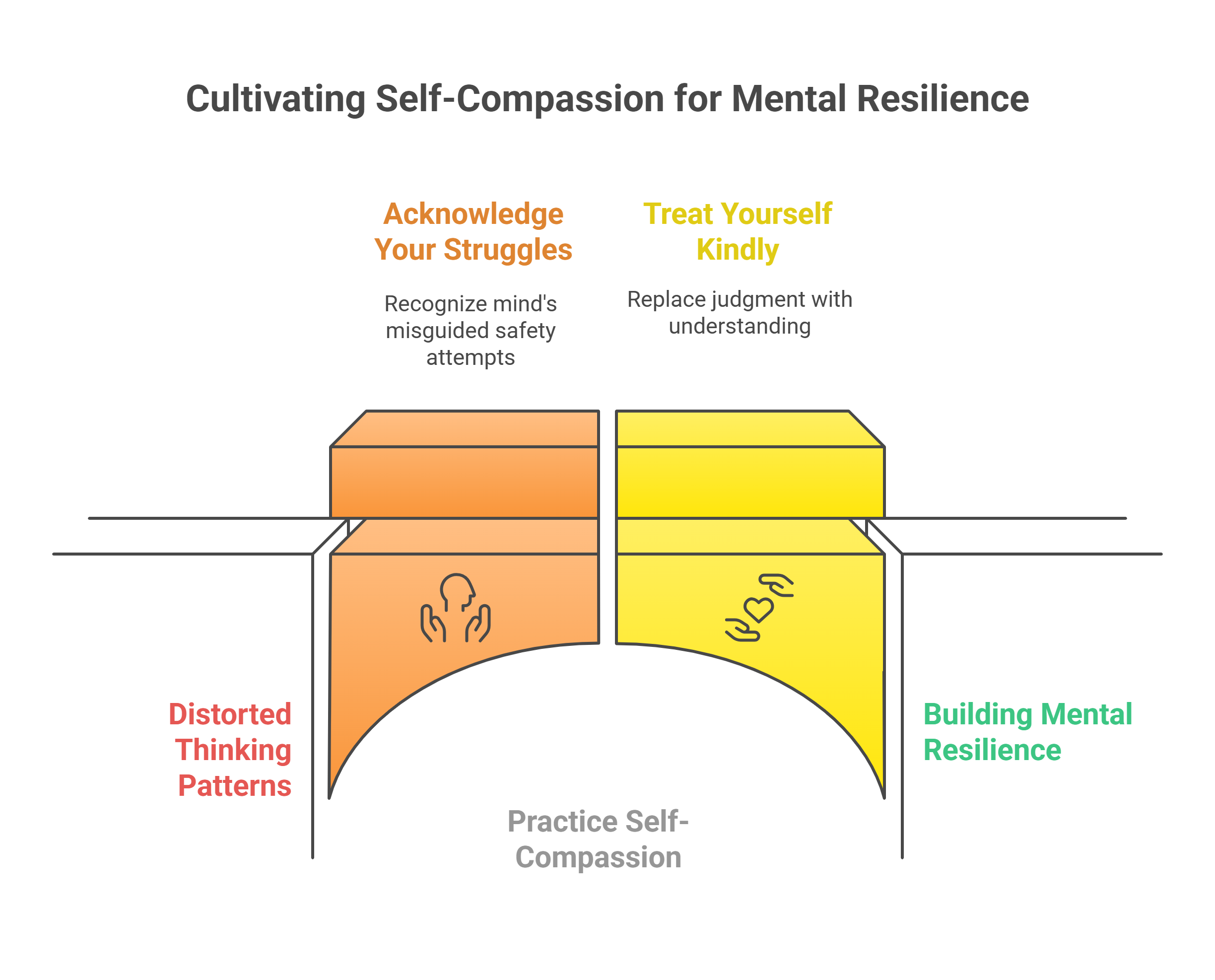
Understanding Cognitive Distortions: What Are They?
Consider this common scenario: you text a friend and they don't reply immediately. In just a few moments, your mind races with the possibility that they might be angry with you, or worse, that they no longer want to be friends. Sound familiar? This is a perfect example of a cognitive distortion—the twisted way our brains can interpret events negatively. As Dr. Tracey Marks explains in her insightful video, 'Cognitive Distortions: How to Stop Believing the Lies Your Brain Tells You,' understanding these distortions isn't just fascinating; it's essential for building mental resilience.
In 'Cognitive Distortions: How to Stop Believing the Lies Your Brain Tells You', Dr. Tracey Marks highlights key insights into how distorted thoughts can undermine our mental health, prompting a deeper examination of these concepts.
Why Does Our Brain Create Distorted Thoughts?
Cognitive distortions arise when our brains take shortcuts during stressful situations. Our amygdala, a part of the brain responsible for our fight-or-flight responses, often overrides rational thought, particularly when we feel threatened. This can lead to thoughts that aren’t necessarily based on reality, such as believing that not receiving a text means your friendship is in jeopardy. It’s important to recognize that our brains are wired to protect us, but they can also mislead us into believing untrue narratives.
The Most Common Cognitive Distortions
Dr. Marks highlights four prevalent cognitive distortions that people often encounter:
Catastrophizing: Jumping to the worst-case scenario, like assuming a headache is a sign of a brain tumor.
All-or-Nothing Thinking: Seeing things in black or white, where you either succeed completely or fail entirely.
Mind Reading: Assuming you know what others are thinking, particularly thoughts that may be negative towards you.
Personalization: Taking on undue responsibility for events beyond your control.
Each of these distortions can lead us to amplify our worries and reduce our resilience, making it crucial to recognize and address them.
Fact-Checking Your Thoughts: The Evidence Check
An effective method to combat cognitive distortions is the 'evidence check' technique. This approach allows you to pause and evaluate the validity of your anxious thoughts. Instead of accepting your brain's fearful narrative at face value, ask questions like, "What evidence supports this worry?" and "What facts contradict it?" This inquiry helps you realize that many anxieties are based on shaky premises rather than concrete realities.

Why Self-Compassion Matters in Addressing Distortions
As you challenge your distorted thinking, remember that self-compassion is crucial. It's easy to become frustrated with yourself for falling into these thought patterns. However, acknowledging that your mind is simply trying to keep you safe, albeit in a misguided way, allows you to treat yourself with kindness, rather than judgment. Recognizing your struggles is a significant step towards building resilience.
The Path to Mental Resilience
Rewiring your thinking isn't an overnight process. It requires practice. The more you apply the evidence check, the stronger the pathways in your brain become for rational thinking. Over time, you’ll notice your ability to respond to stressors with clarity instead of automatic negative interpretations.
Dr. Marks concludes with a valuable takeaway: while we can't control every thought that enters our mind, we can choose how to respond to them. By practicing evidence checks and embracing self-compassion, you are on the path to transforming your mind and enhancing your resilience against life's challenges.
Take Charge of Your Thoughts Today!
If you want to build your mental resilience, take a moment this week to apply the evidence check technique. Notice one recurring anxious thought you experience and pause to evaluate its validity. You might find that there's less to worry about than you thought! By taking control of your thoughts, you pave the way for a more balanced and peaceful mindset.
 Add Row
Add Row  Add
Add 




Write A Comment